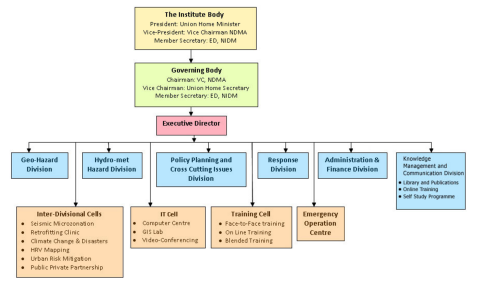pece_annotation_1475709170
hayley.frankpece_annotation_1524601928
elizabeth.diblasioThere are many vulnerabilities listed in this artifact that directly affect the community. To begin with, Bergen, Hudson, and Essex county are listed as the state's worse air quality. It also states that more than four in 10 people experience unhealthy air quality in the community within NJ.
pece_annotation_1475709096
hayley.frankThe Disaster Management Act of 2005 constitutes the responsibilites of the NIDM to be human resource development, capacity building, training, research, documentation and policy advocacy in the field of disaster management. The organization aims to promote disaster management as a high priority in the national goverment. They also aspire to create "a culture of prevention" pertaining to disasters that involves all stakeholders.
pece_annotation_1524600826
elizabeth.diblasioThis artifact states the solutions that local lawmakers have come up with in order to effectively clean up the toxic waste in the Passaic River. There are many sources of resilience here as the E.P.A added to a superfund program worth $1.38 billion to clear the city of chemicals, pesticides, and all other contaminants that deterioate the Passaic River. This plan extends into the Belleville area as well. For three decades the E.P.A has used this Superfund program to clean up the countries' most hazardous waster sites. The efforts to clean up the Passaic are a result of the intesnse cleaning of the Husdon River and Gowanus Canal in Brooklyn.
pece_annotation_1524596561
elizabeth.diblasioThe main hazard of this artifact is the chemically polluted waters of the Passiac River and its effects on the marine life. Furthermore, it ish from the river are typically eaten by the locals. The main form of precaution exercised to avoid this health hazard would be the fish exchange tents which have been set up for locals to use exchange their catches from the Passaic with farm raised tilapia.
pece_annotation_1475710444
hayley.frankThe Minister of Home Affairs acts as the President, and the Vice Chairman of the NDMA (National Disaster Management Authority) acts as Vice President. The body of the organiation is comprised of 42 members including secretaries of nodal Ministries and Departments of Government of India and State Governments, the heads of national scientific, research and technical organizations, and eminent scientists and practioners. The governing body of the organization, which runs its day to day operations, is comprised of 16 members, and is chaired by the Vice Chairman of the NDMA, with the Secretary of Home Affairs acting as the Vice President.

pece_annotation_1475709445
hayley.frankThe Disaster Management Act of 2005 constitutes the responsibilites of the NIDM to be human resource development, capacity building, training, research, documentation and policy advocacy in the field of disaster management. The organization aims to promote disaster management as a high priority in the national goverment. They also aspire to create "a culture of prevention" pertaining to disasters that involves all stakeholders.
pece_annotation_1517350892
elizabeth.diblasioVulnerability and resilience in this artifact are defined by the high concentration of child poverty in Essex County. They are measured using the Census from 2000 and 2015 which show how there is a trend in the percentage of children who expereince poverty within the county. Majority of the children living in poverty are currently living in heavilyu concentrated poverty neighborhoods like Newark, Irvington, and the Oranges. Although the affluent town of Milburn is nearby, it is unclear how these children continue to live below the poverty line in Newark even though the towns are only 6 miles apart.


bagamoyo